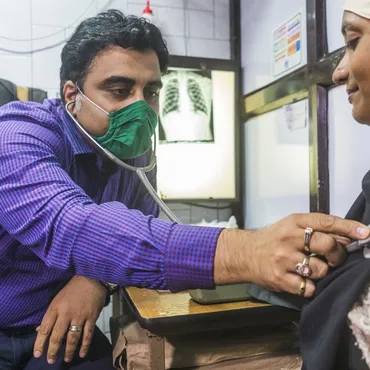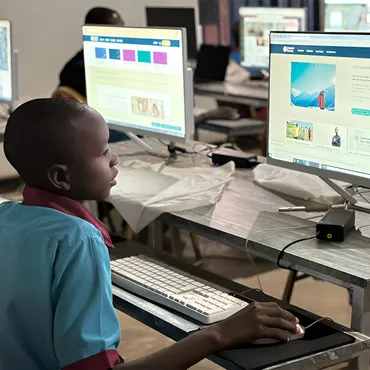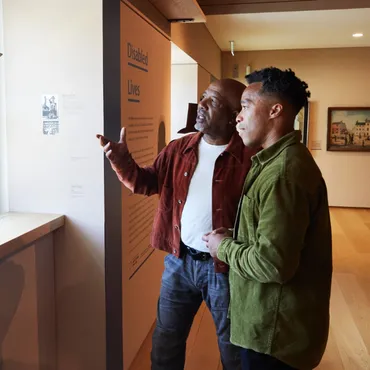Boosting global reach for the Royal Society's Summer Science event
We elevated the Royal Society's Summer Science event to a global audience with a cross-channel digital marketing campaign, significantly enhancing engagement and broadening the event's reach.

The Royal Society

The outcomes
- 73.5K Website sessions
- 10K Facebook event responses
- 69K Unique Spotify listens
The background
Every summer the Royal Society, a fellowship of the world’s most eminent scientists, holds a ‘Summer Science’ festival. Over the course of a few days they run a packed programme ranging from inspiring talks and lectures showcasing cutting-edge research, to fun science activities and workshops for children and families. The Exhibition is the Society's main public-facing event, open to the general public, students and teachers, scientists, policymakers, the media, and everyone in between.
The brief
A cross-channel digital marketing campaign
Typically the Summer Science festival is held in London, but in 2021, with much of the world still working remotely, the Royal Society decided to run ‘Summer Science Online’. This involved live-streamed events and a microsite full of interactive content. We were tasked with running a cross-channel digital marketing campaign in support of this event.
The 2021 event posed an initial challenge - with the ongoing pandemic situation, many might assume that the festival would not take place. So it was vital that the new virtual format was promoted as quickly as possible to make sure potential remote attendees were aware of the event’s existence. We knew the best channels for this awareness phase were Facebook, Spotify, YouTube, and paid search. So we put them to work.

An overview of how the campaign was split into four phases
The strategy
A four phase campaign
To generate the best return we split this campaign into four separate phases, each of which had its own set of conversion goals with ad copy tailored to driving these conversions.
- Phase 1: the ‘awareness’ phase where we ran ads on paid search, Facebook and Spotify with messages like ‘Summer Science is back!’. This phase was designed to build anticipation ahead of the event, and we employed Facebook Event Ads to help drive interest.
- Phase 2: the ‘events’ phase ran on the days the festival took place. Here we used direct messaging to promote specific live-streamed events.
- Phase 3: the ‘post event’ phase promoted the microsite and encouraged users to explore the event videos on YouTube, dramatically increasing views to almost 300K.
- Phase 4: for the final phase, we promoted a selection of educational science games and activities created by various research groups.
The audiences
The target audience for this campaign was truly global: individuals from across the world with an established interest in science and the related issues and solutions shown during Summer Science. With topics ranging from space to climate change, the latest research around cancer treatments, through to what happened on the last day of the dinosaurs, the potential for a wide audience of thinkers was vast. Our targeting took in the UK, the East Coast of the USA, and India.
On PPC, our keyword targeting blended brand with non-branded (including keywords like “home activities for kids” and “things for kids to do at home”.
The results
A successful campaign
At the end of the campaign, we reported the following results:
- The Royal Society website received 73.5K sessions and 119K page views from 58K users across all traffic sources.
- Facebook Ads generated 10,785 Facebook event responses.
- Paid search, paid social and Spotify ads drove 63% of the total sessions on the Summer Science hub, 51% of page views and a glorious 67% of all users who visited the Summer Science content.
- YouTube activity, which involved the promotion of 26 different videos from the event, generated 298K video views.
- Spotify generated 69,000 unique listens at a unique cost-per-listen of under £0.01.
Users brought in by this campaign were more engaged, with a 256% higher average session duration than those who landed on the content organically or from other channels.
These results, combined with an audience list of 750 new contacts to add to the Royal Society mailing list, made it a hugely successful project all round.
Looking ahead
From pandemic to endemic
With the world transitioning from pandemic to endemic, it’s likely that Summer Science 2022 will be a hybrid event, combining in-person events in London with live streamed activity. In other words, this year will be another year of firsts for the Royal Society.
Our relationship with the Royal Society continues to grow, with new campaigns already planned and launched to ensure tomorrow’s supporter base is nurtured now. This, combined with the learnings from last year’s campaign will ensure that 2022’s event is an even bigger success.




